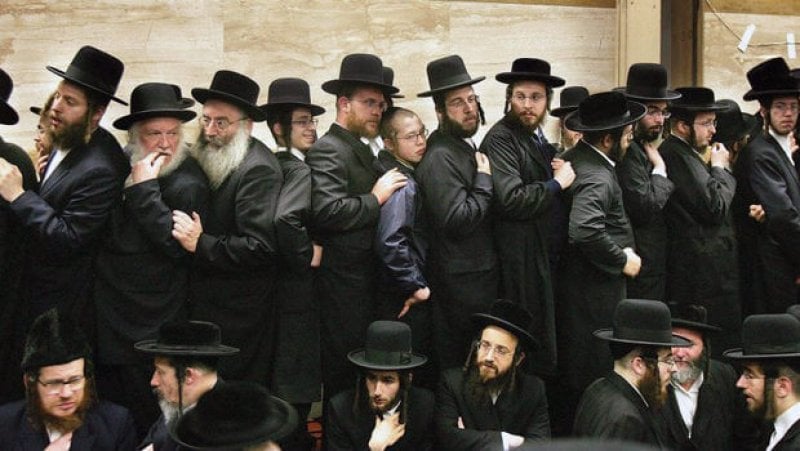Kevin MacDonald now says that his “central goal has been to describe intellectual and political movements that were influential. The participation of individual Jews, such as the Jewish speakers at American Renaissance…, does not make AmRen a Jewish movement, nor does it make it influential.” He says he is only “concerned about where the power lies.”
Editor’s note: Nathan Cofnas is writing about the essay Kevin MacDonald responds to criticism of his theory of Jewish ethnocentrism and influence. Cofnas’s original piece was Analyzing Kevin MacDonald’s ‘Culture of Critique’ and the alt-right’s embrace of anti-Jewish ideology.
Notice the implication: Even if Jews are vastly overrepresented in leadership positions in anti-liberal, anti-multicultural movements (which they are), it won’t matter for MacDonald because these movements haven’t been “influential” and the “power” doesn’t lie with them. This effectively means that he will refuse to accept evidence that supports the obvious alternative to his theory, namely the “default hypothesis”: Because of their above average intelligence and concentration in influential urban areas, Jews will be overrepresented in all intellectual movements and activities that are not overtly anti-Semitic.
The case of American Renaissance is a good example of how Jews are overrepresented among the whole range of (non anti-Semitic) political movements. AmRen is the only major white nationalist organization that is not anti-Semitic. Jewish involvement in AmRen has gone far beyond the “participation of individual Jews.” Jews were 40% of the invited speakers at its first conference, and many of the most prominent people who have been associated with AmRen have been Jews. There are currently eleven books and pamphlets for sale on AmRen’s website (including three by founder Jared Taylor). Two of these are by Jews: Why Race Matters by Michael Levin, former professor of philosophy at City University of New York, and “The Color of Crime”—probably the most influential AmRen publication—by Edwin S. Rubenstein. (Ironically, Jewish involvement in AmRen seems to have dropped off in recent years in large part due to the increasing influence of MacDonald’s work, which has turned many educated white nationalists anti-Semitic.)
MacDonald says that he “can’t think of any prominent populist Jewish intellectuals.” It’s not clear what he means by “populist” or “intellectual.” Bernie Sanders and Donald Trump were both described as “populists,” but I assume MacDonald is referring to a white nationalist populism. If that’s what he means, it’s not clear that there are any prominent populist intellectuals in America today, Jew or gentile.
MacDonald says that “there is a sprinkling of Jews among paleoconservatives.” This is misleading. The term “paleoconservative” was coined by a Jew, Paul Gottfried (whom alt-right leader Richard Spencer described as a “mentor”). As I wrote in my first rejoinder to MacDonald, according to the “Prominent people” section of the Wikipedia entry for “Paleoconservatism,” 1/6 prominent paleoconservative politicians, 1/9 philosophers and scholars, and 1/5 journalists is Jewish. This makes Jews vastly overrepresented among prominent paleoconservatives despite the fact that many self-identified paleoconservatives are (at least implicitly) hostile to Jews. Once again, we find the pattern predicted by the default hypothesis and not predicted by MacDonald.
One final point. MacDonald keeps repeating that the Jews he discusses are “strongly identified Jews.” I have pointed out in both my paper and my rejoinder that, in almost all cases, he has no evidence for this other than the fact that these people were Jewish and (in some cases) spoke out against anti-Semitism, which does not actually prove that someone is a “strongly identified” Jew. For MacDonald, however, it seems that the only reasons to oppose anti-Semitism are that one is a strongly identified Jew, under the control of Jews, or alienated from society because of physical unattractiveness. (He recently offered the following explanation for why Jean-Paul Sartre fought against anti-Semitism: “Sartre was ugly by all accounts and 5-feet tall. No surprise growing up he felt rejected & had low social status. He turns this resentment into philosemitism (Jews are also rejected outsiders), hatred of traditional institutions, & into [the] theory [that] anti-Semitism is psychopathology.”)
In his reply, MacDonald claims that the figures he mentions, who espoused universalism and rejected Jewish nationalism, “often had complex and even self-deceptive Jewish identities.” This is a roundabout way of admitting that these figures never gave any indication that they cared about being Jews. Nevertheless, MacDonald concludes that their apparent apathy was “self-deceptive” because unconsciously they were strongly committed Jews. The practice of reinterpreting obvious counterexamples to a theory as supporting evidence is the essence of pseudoscience.
Nathan Cofnas is a graduate student in the philosophy of biology at the University of Oxford. Follow him on Twitter @nathancofnas































